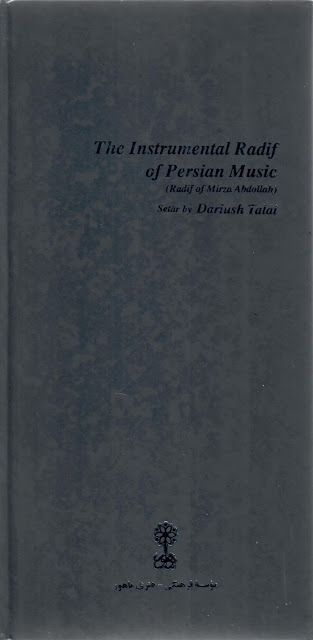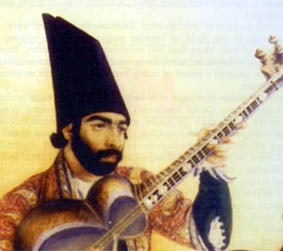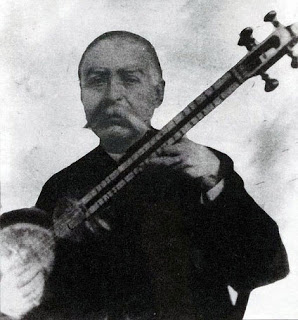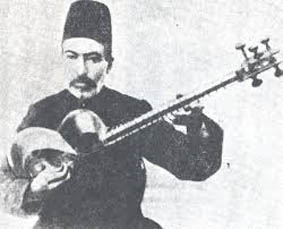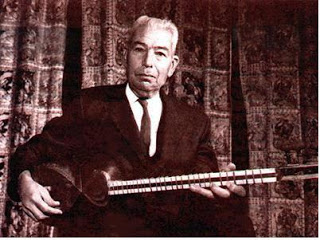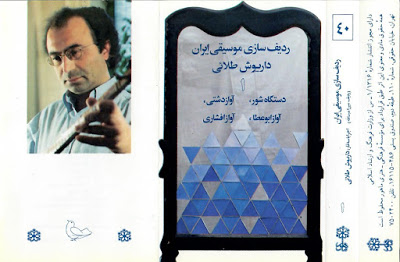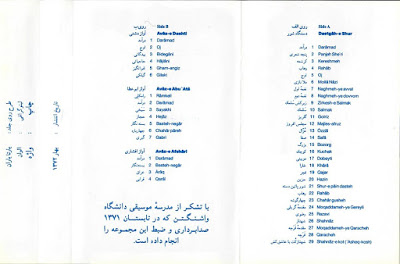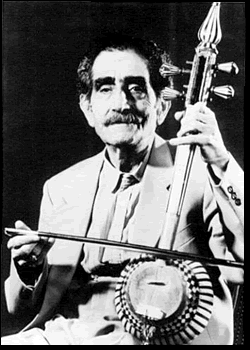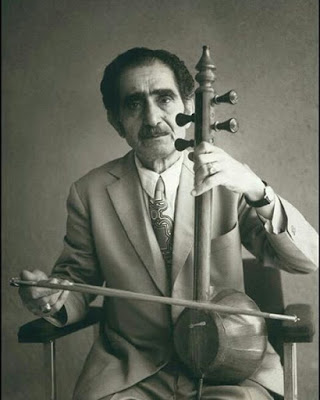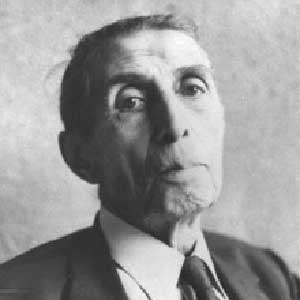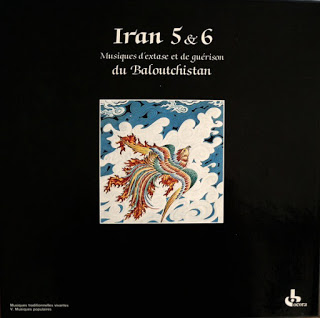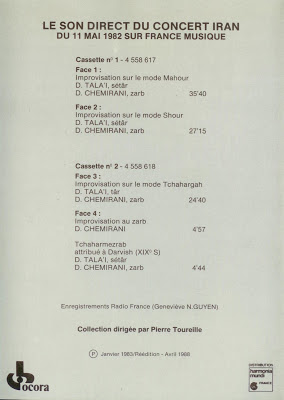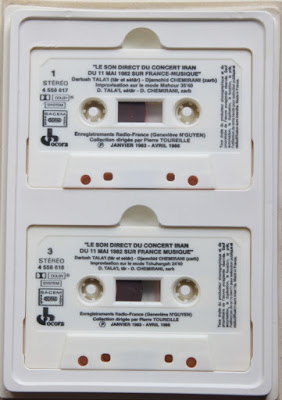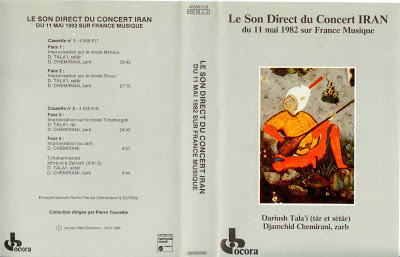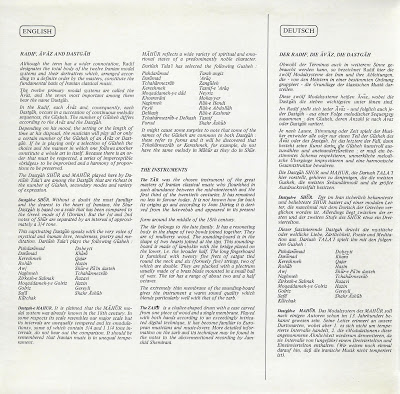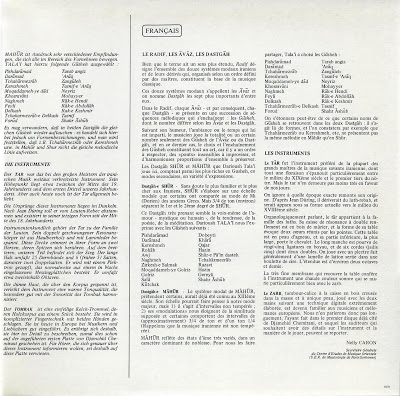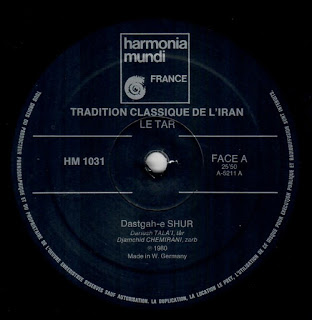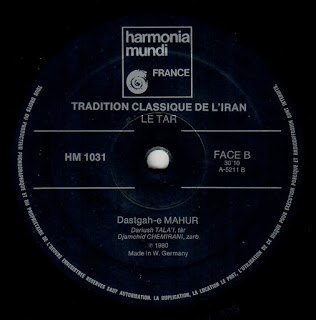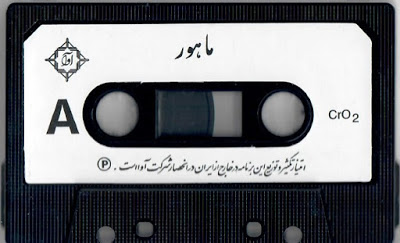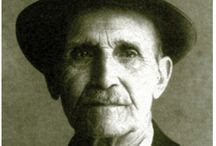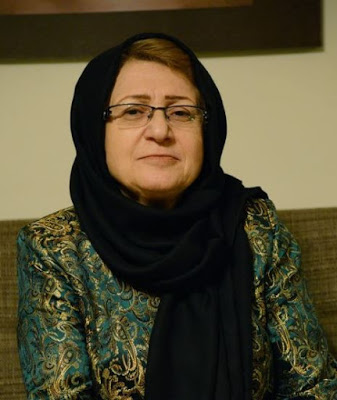Before we proceed on our journey further towards Afghanistan and India, we return back to Iran for another unexpected post by Dariush Tala'i. We received this box recently as a gift from a very dear Iranian friend, Mohsen. Many many thanks to him.
This Radif was recorded in 1992 at the University of Washington, School of Music, Seattle. It was first published in 1994 on 5 CDs by the French label Al Sur. These CDs are no longer available for many years. The Iranian edition on six cassettes was probably published shortly after the French edition. It is also no longer available for quite some time and never has been released on CD in Iran.
Mirza Abdollah (1843-1918), whose Radif is performed here, was one of the most important musicians in the recent history of classical Iranian music. His father Ali Akbar Farahani was the one who collected all the remaining parts of the old classical music and organized them into a Radif. His two sons, Mirza Abdollah and Mirza Hossein Qoli (Agha Hossein Gholi) (1853-1916) transmitted two different versions of this Radif to many students. These two Radifs are the basis of most classical Iranian music since then.
Ali Akbar Farahani
Mirza Abdollah
Aqa Hossein Qoli
Ali Akbar Khan Shahnazi
Dariush Tala'i himself is a student of Agha Hossein Gholi's son, Ali Akbar Khan Shahnazi (1897-1985), who was considered the greatest Tar player of his generation. Ali Akbar Shahnazi transmitted the Radif of his father to many excellent students. He also created his own Radif, which he also transmitted.
But Dariush Tala'i learned also the Radif of Mirza Abdollah, which is the most widely known and used Radif, probably from another of his masters, Nur Ali Borumand (1905-1977), who was the main transmitter of this Radif to later generations. In the booklet to the French edition of this Radif Dariush Tala'i thanks all his masters. Next to the two already mentioned, these are Abdollah Davami, Yusuf Forutan and Said Hormozi. By three of these masters we recently posted recordings.
The Radifs by Mirza Abdollah, Aqa Hossein Qoli (another transcription of his name) and Ali Akbar Shahnazi are all available on CDs and also as books, with complete scores of the Radifs, from the Iranian label and publishing house Mahoor.
Volume 1:
Volume 2:
Volume 3:
Volume 4:
Volume 5:
Volume 6:
